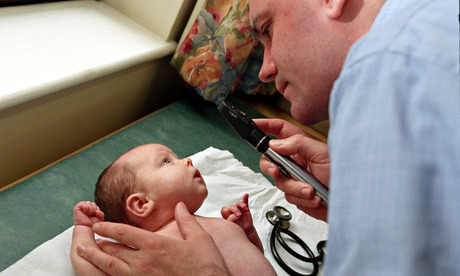
Shadow care minister Liz Kendall has revealed major failings in Greater East Midlands commissioning support unit. Photograph: Dominic Lipinski/PA
The government’s reorganisation of the NHS has led to major failings by “unaccountable bureaucrats” in the commissioning of care for highly vulnerable people, the shadow care minister Liz Kendall has said.
A new tier of commissioning groups, which were created under Andrew Lansley’s NHS reforms, employ 9,000 people and spend more than £700m, were commissioning complex care with little monitoring of quality, she claimed.
Kendall spoke out about the 18 NHS Commissioning Support Units (CSUs) in England after uncovering major failings in her own area of the east Midlands. The CSUs were created as a result of Lansley’s Health and Social Care Act because the GP-led clinical commissioning groups – the centrepiece of the reforms – were considered too small and inexperienced to commission all the healthcare.
The shadow care minister, who is MP for Leicester West, uncovered a catalogue of failings by the Greater East Midlands CSU (GEM), which has one part-time person monitoring quality standards in their domiciliary care providers even though they procure care from 84 providers.
The failings identified by Kendall included:
• An 89-year-old bed-bound man with Alzheimer’s in need of care throughout the night whose family were not told that the company appointed by the commissioning group initially did not have enough staff. When the carers did come in they failed to change the man’s incontinence pads overnight.
• A 21-year-old terminally ill man who was discharged after 10 weeks in hospital without the correct support. When Kendall spoke to the man’s caseworker she said she was not aware he had been discharged from hospital.
• A 74-year-old man with dementia who was given four days’ notice to leave his care home after his funding for NHS Continuing Care – available for those who need support in their own home or a care home – was withdrawn as part of an annual review on the grounds that he was no longer taking medication. The man’s daughter said he had stopped taking medication to assist his condition, which has worsened.
Kendall said: “The real culprit here is the government and their massive backroom NHS reorganisation. This has put unaccountable bureaucrats in charge of commissioning care for some of the most vulnerable people in this area. Labour warned the reorganisation would cause chaos and confusion and that patients would suffer – and that’s precisely what has happened.
“Ministers must apologise to families and get a grip of the mess they have created. GEM should be stripped of its role in commissioning NHS Continuing Healthcare and a single, accountable person with the right skills and experience put in charge so that these unacceptable failures can be prevented from happening again.”
NHS shakeup has produced confusion, chaos and suffering, says Labour
